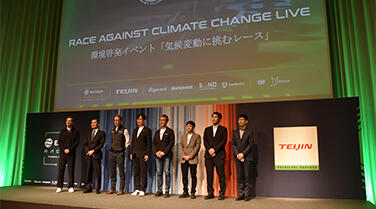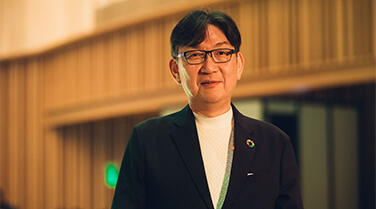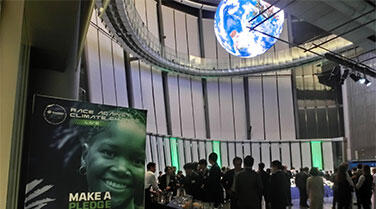Race Against Climate Change Tokyo
What is Race Against Climate Change™?
Envision Racing has sustainability running through its DNA and was created for one simple purpose, to inspire generations to tackle climate change and transition to e-mobility and renewable energy. Both on and off the track, Envision Racing focuses on accelerating and promoting innovation and change that will help us to live more sustainably, using their Race Against Climate Change™ program to mobilize fans around the world to be part of this change.
As part of these efforts, since 2017 they have been hosting the environmental awareness event "Race Against Climate Change™ Live." Environmental experts from industry, government, and academia, as well as business representatives working on environmental issues are invited to the inspiring panel discussions on topics such as the sustainable cities, EVs, and renewable energy.
Race Against Climate Change™ Live Tokyo
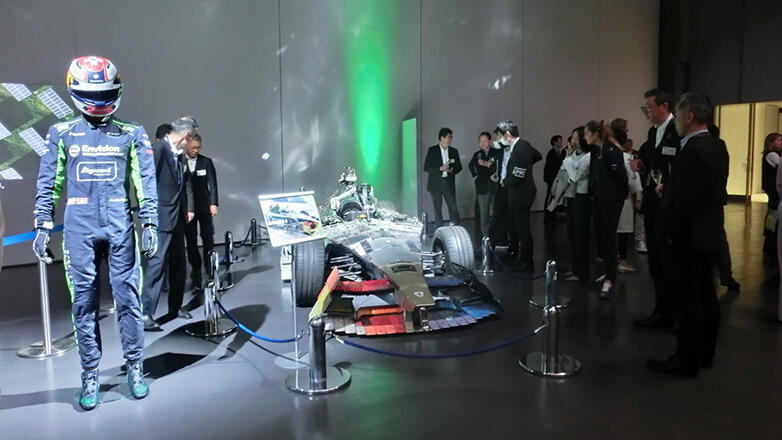
"Achieving a circular economy" is one of the Teijin Group's "important social issues." Envision Racing, meanwhile, believes motorsport is more than a race on track; it's a powerful platform for driving sustainable change. Sharing this aspiration, we jointly hosted Race Against Climate Change™ Live Tokyo (RACC Tokyo) for the first time in March 2024, ahead of the first Formula E race in Tokyo. RACC Tokyo has since been held every year in conjunction with the Tokyo race.
At the May 2025 event, bringing together leaders from e-mobility, manufacturing, technology and finance, the event explored a pressing question: how can cross-industry collaboration and innovation accelerate the shift to a circular economy. Two powerful panel discussions tackled this challenge from different angles.
Panel Discussion 1
From Race to Reality -- Formula E as a Testbed for Circular Innovation
The first panel, featuring Envision Racing and battery manufacturer AESC, explored how electric motorsport can drive change far beyond the racetrack.
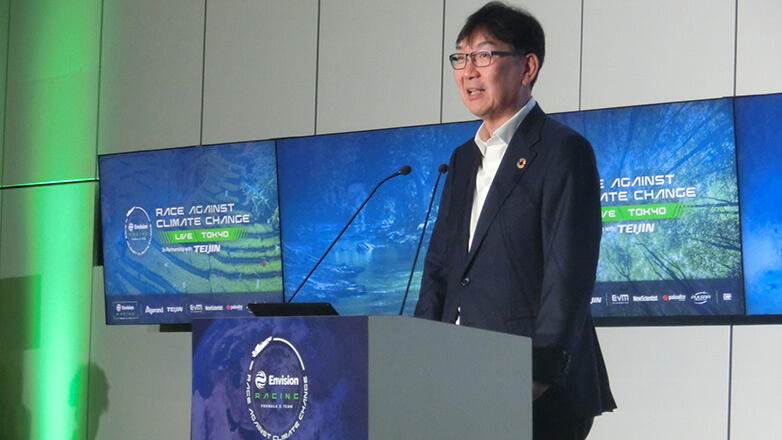
Envision Racing's Managing Director and CTO, Sylvain Filippi, explained, Formula E is defining motorsport's role in sustainability and acting as a testbed for cutting-edge EV technologies.
Sustainability
Compared to Formula 1's 20 tire sets per car, per race and large teams, Formula E operates with just two sets per car per weekend and a significantly smaller crew. The impact is clear: more efficiency, less waste.
EV technology
In just over a decade, Formula E has evolved from needing two cars per driver to single-car efficiency, 350kW power output, and 0-60 mph acceleration in 1.8 seconds, which is 30% faster than Formula 1. Looking ahead, Gen 4 cars in 2026 will push boundaries with 600kW power and advanced energy regeneration.
AESC Japan's CEO, Shoichi Matsumoto, explained AESC's battery recycling technology and the company's current efforts to build an international recycling network to achieve both a stable supply of battery raw materials and cost reduction.
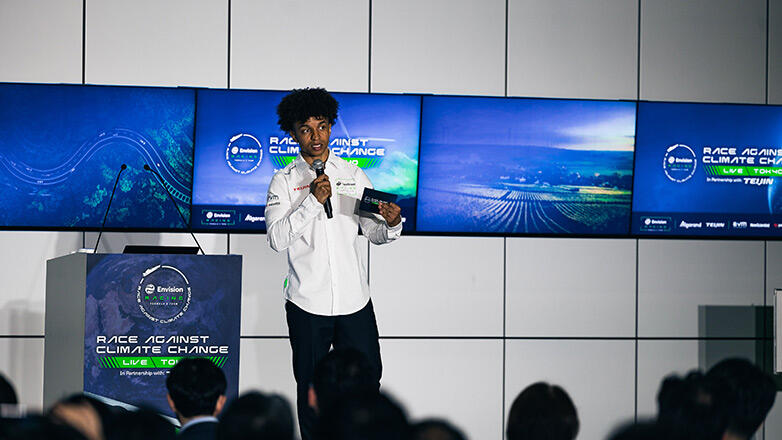
Panel Discussion 2
Innovating for a Circular Economy -- Materials, Mobility & the "S" in ESG
The second panel, expertly steered by Hideaki Yonekubo, COO of esa, shifted the focus from vehicles to the people and materials that power them. Featuring insights from Global Mobility Service, WHILL and Teijin, the discussion explored how innovation in circularity must extend to both the physical and social dimensions of sustainability.
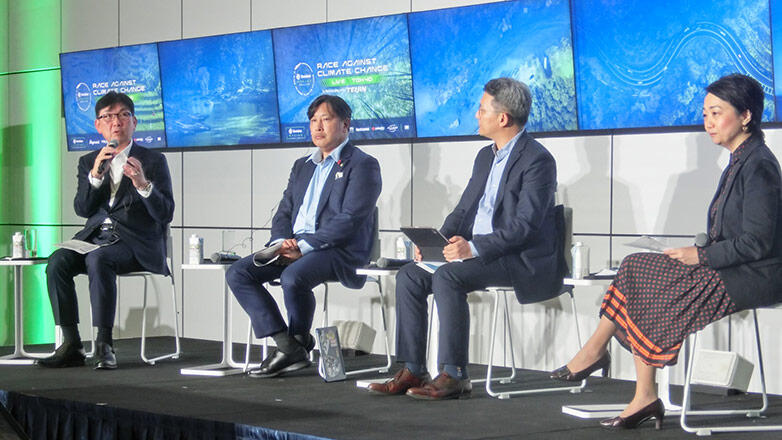
Tokushi Nakashima, President and CEO, Global Mobility Service Inc.
He spotlighted the "circularity of people (rebuilding the trust in people)", using technology to create access to mobility and employment for underserved communities. Through their IoT-enabled Mobility Service Platform, the company enables individuals without traditional credit access to auto-financing, helping to reintegrate them into the economy and fostering social empowerment.
Junpei Naito, Co-founder and Chief Development Officer, WHILL Inc.
He emphasised the importance of emotional engagement in sustainable design, and empowering people with the autonomy to go where they want, when they want, regardless of ability. For circular solutions to succeed, people must actually want to use them. So, that means creating sustainable mobility solutions that people are not only able to use, but excited and proud to ride.
Yutaka Yagi, General Manager of Environmental Solution Division, Teijin Limited
For him, circularity is about durability, traceability, and changing mindsets around the life of a product. By linking environmental data of Digital Product Passport with storytelling, Teijin could possibly encourage users to value and retain products longer, reinforcing circular behavior through care, not just compliance.
The panel agreed on one key point: circularity is as much a technical challenge as it is a challenge of mindset and culture. Without shifts in human behavior, no amount of innovation will move the needle fast enough.
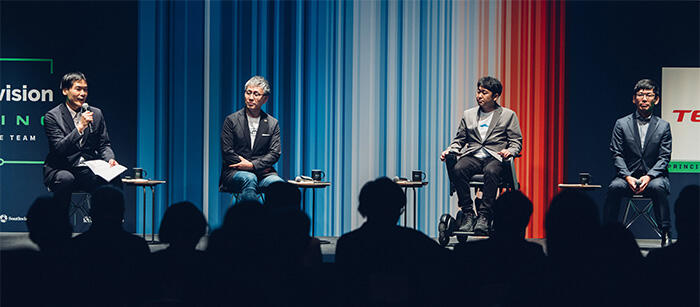
Looking Forward: Circularity Needs Collaboration
One message echoed throughout both panels: circularity cannot happen in isolation. Whether it's motorsport serving as a testbed for EV innovation, or companies reimagining mobility through material science and social equity, progress relies on collaboration across industries, sectors and borders.
As indicated by our Purpose, "Pioneering solutions together for a healthy planet," the Teijin Group will utilize the diverse expertise within the company and work in collaboration with customers and partners to provide solutions to social issues for the sake of a beautiful global environment and the health of all life on it.

